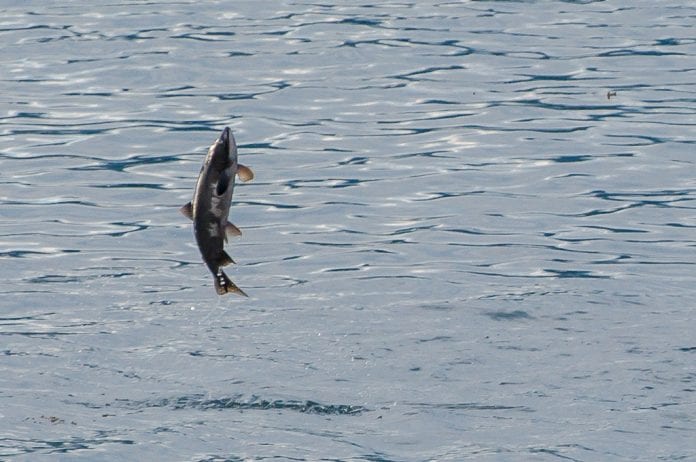
The Alaska Trollers Association is urging the state of Alaska to make changes in its approach to the Pacific Salmon Treaty negotiations, on peril of losing one of its most valuable commercial resources.
The comment came in a news release from the ATA on May 22, just four days after they learned at the Southeast Chinook Salmon Symposium at Sitka that they would be losing more harvest share of treaty king salmon.
“Alaska has not one time, since the treaty’s implementation, went into these negotiations and returned without a loss to their harvest share,” said ATA President Steve Merritt, in Juneau.
The health of the troll industry is a vital part of the social and economic well-being of Southeast Alaska, said Merritt. Most trollers live in Southeast Alaska, and a large number in rural communities, and about one in every 35 people in the region work on a troll vessel, he said.
The troll fleet’s ex-vessel value is about $30 million annually, and nearly 10 percent of the value of the entire statewide commercial salmon harvested, and the troll industry contributes nearly $1 million in raw fish taxes to the state’s general fund annually, he said.
Merritt noted that troll fleet is currently managed very conservatively because of poor Chinook returns to Southeast Alaskan rivers.
He cited as a meaningful conservation measure an Alaska Board of Fisheries decision to implement stock of concern plans last January that made major cuts to troll winter and spring fisheries.
With Chinook abundance in general at low levels for several other stocks on the Northwest coast, Alaska is getting a smaller Chinook quota under the current treaty agreement. Charles Swanton, deputy commissioner of the Alaska Department of Fish and Game, levied an additional 10 percent cut on the state’s Chinook fisheries this year for conservation of Trans-Boundary River and Canadian stocks as well. ATA disputes that cut as having meaningful conservation value and which ATA believes is a misinterpretation of the standardized fishing regime portion of the Pacific Salmon Treaty, he said.














